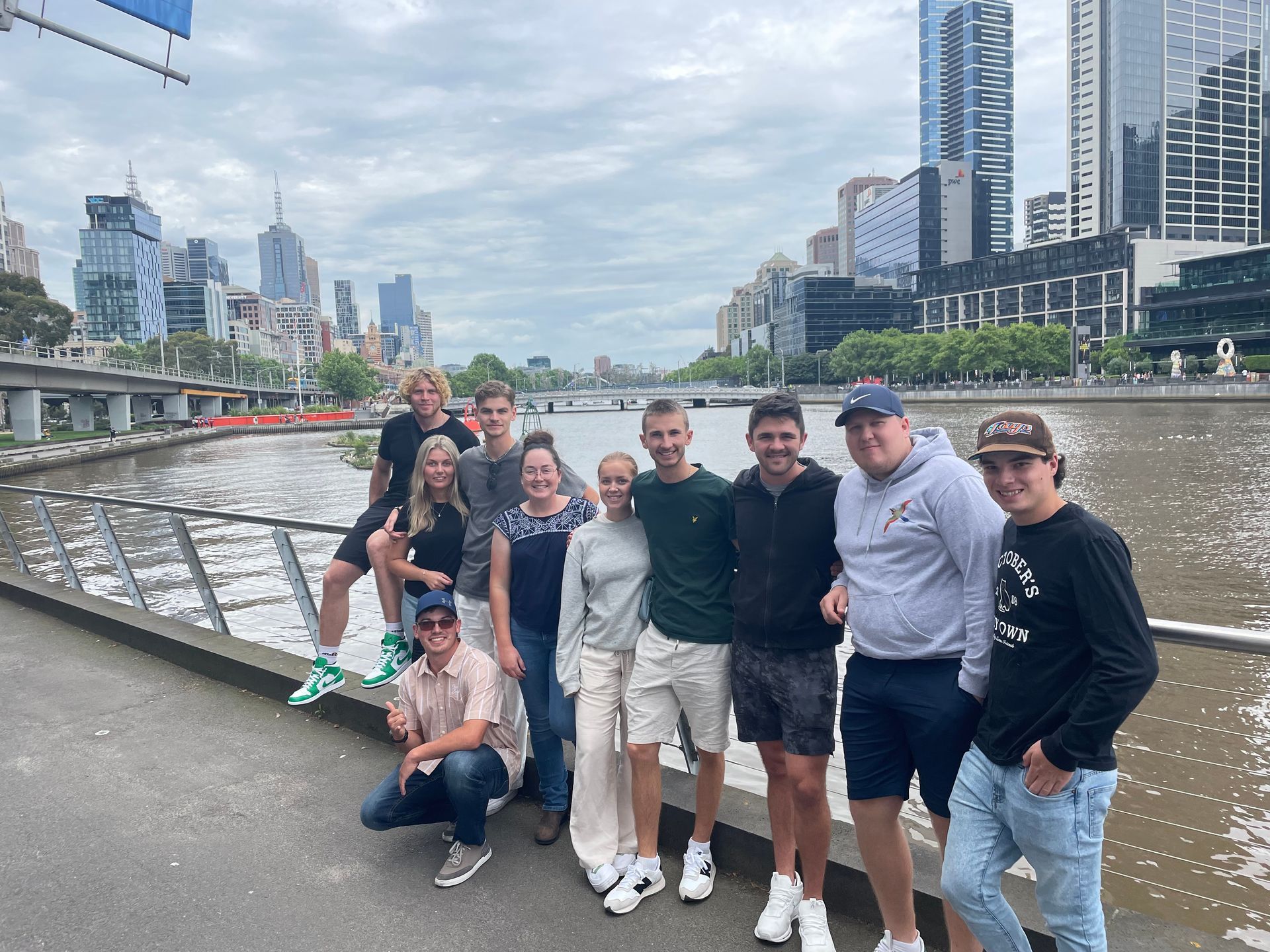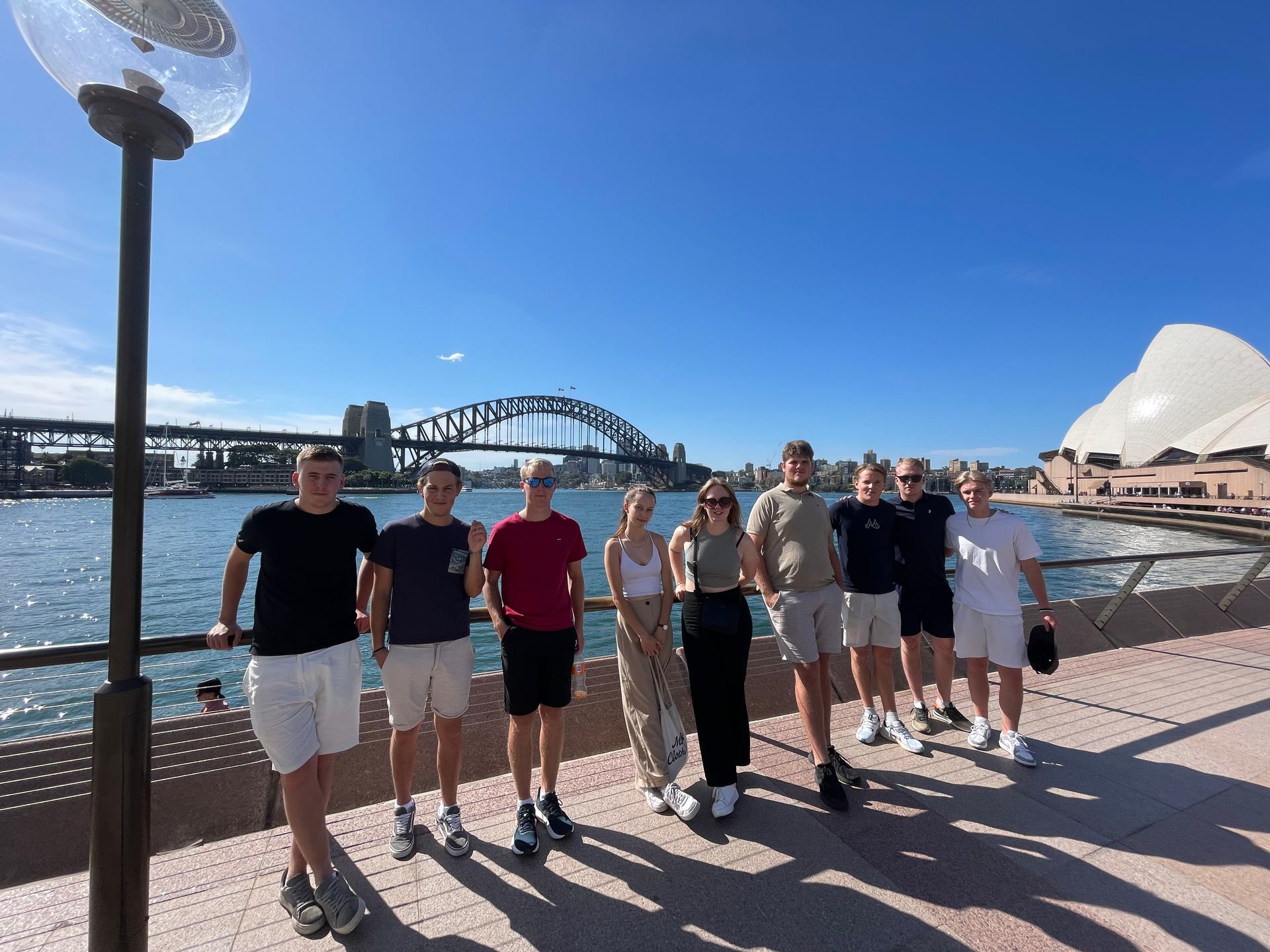18 university students working with his permanent crew, Pymble Golf Club Superintendent, David Stone

An innovative solution to workforce planning at Pymble Golf Club.
David what led you to review how you were doing things resourcing wise?
“When I arrived, overtime costs were high. You had two opportunities a week here, Monday and Thursday to get some mowing done. With a three tee start, you were really busy in the morning to get work done out in front of the golfers, and then had to wait until the golfers passed and then only after that could you get more work done.
We had a budget of 14 staff when I arrived but, however we were down on that number so we looked at how we could do it better knowing it would be difficult to fill those permanent roles .”
How did you come up with the idea, this approach?
‘I had two university students down at Bayview, they would come in four mornings a week on cut walkers, so I knew that it could work. When I arrived at Pymble Golf Club, we were short by a couple in headcount, and being in the middle of Covid the club didn’t want to employ anyone permanently. We discussed how we might get some casuals if things deteriorated. I suggested that we give using university students a try and it just snowballed. We had one working as a casual, doing three shifts a week, he had a couple of friends and they had friends and it grew from there. Within a month, we had 18 on the books. The first few weeks were challenging, but after that they picked it up and they are all working out great.’
How is it working?
“We have anywhere from 5 to 8 university students every morning on cut walk behinds and rake bunkers, they clear leaves off greens and we have them on the drag behind blowers. Those are the three main things they are doing. They complement their permanent crew.”
“We have more hands-on decks, when we need them and they can be more productive, and that also cuts back on our overtime costs and our overall wages costs. The 18 students have varied rostered days which probably equates to around 5 FTE. On the main competition days, Tuesday, Wednesday, and Thursday they have 8 of them in and 5 in on Saturday and on Sunday. Three guys use cut walkers and two rake the bunkers every Saturday and Sunday and so it only requires two permanents, one to change holes and one to roll the greens. This is an arrangement the permanent crew are happy with as they do not have to work every single weekend.”
“Summer suits the students as they have a break of roughly around 4 months. They are working mostly in the mornings and they will also come in and work 5.30am to 8.30am and come back around 2pm and do a 4-hour shift in the afternoon. On the weekends they will do 5 to 8am.
This mix also has benefits in terms of flexibility for permanent staff in terms of when they work. It has also allowed them to schedule them onto periods when the course is quieter, and their travelling time is also reduced because of when they start and finish.”
They ramped this up in April-May and through renovations and they intend to keep the students on through winter. They might lose some shifts, but they will all be kept on.
So what do you get in the typical university student?
“Obviously, being at university they are already pretty well-educated and they are switched on, good kids, who are quick to pick things up.
And they all fit in well! They are doing a range of degrees and they all see this as a university job to get them through and they will move on to whatever their career profession is once they finish their degree.’
(The University students doing an induction session with the mechanic at Pymble Golf Club)
Are they enjoying it, what sort of feedback are you getting from them?
‘Yeah they love it. One of them said to me his last job was in a bar. He said, this is great, he doesn’t have to deal with the public, any drunks or any bs from anyone, he just comes in, has his greens to mow and other work to do and he’s off! He just loves it.”
What about experienced greenkeepers coming in from overseas? It is the usual pool that we would tap into except for the travel restrictions. What has been your experience with them?
‘When I was at Bayview, we rented a house just down the road from the course and had three of them, from the UK. They worked during the week and we let them have the weekends off, because they were here to enjoy the Sydney summer and get out and see the place, so we allowed them that time off’
“You got to realise, that they are here to enjoy Sydney and have a great time and they want to come back.”
“I can see that you would get a couple of experienced internationals coming in to help along with the casuals over the summer and batten down the hatches with a smaller crew over the winter.”
No one else seems to approach workforce planning in quite the way you do or to the same extent at least.
“We are different to most clubs, with a three-tee start, which means we need three crews in front of the field not just two, so hitting the course with larger numbers early, is more of an imperative for us than it might be those clubs with a two tee start. Having the crew supplemented with the number of students that we have, perhaps works better for us than it might elsewhere.
The other broader issue for the industry and not just us, is just how hard it is to get qualified staff. The 18 students on the crew, working when we most need them, means we can run with a smaller permanent core crew of 9 including a mechanic.
David, thanks for your time and insights. Great to get an appreciation for a different approach to workforce planning.




